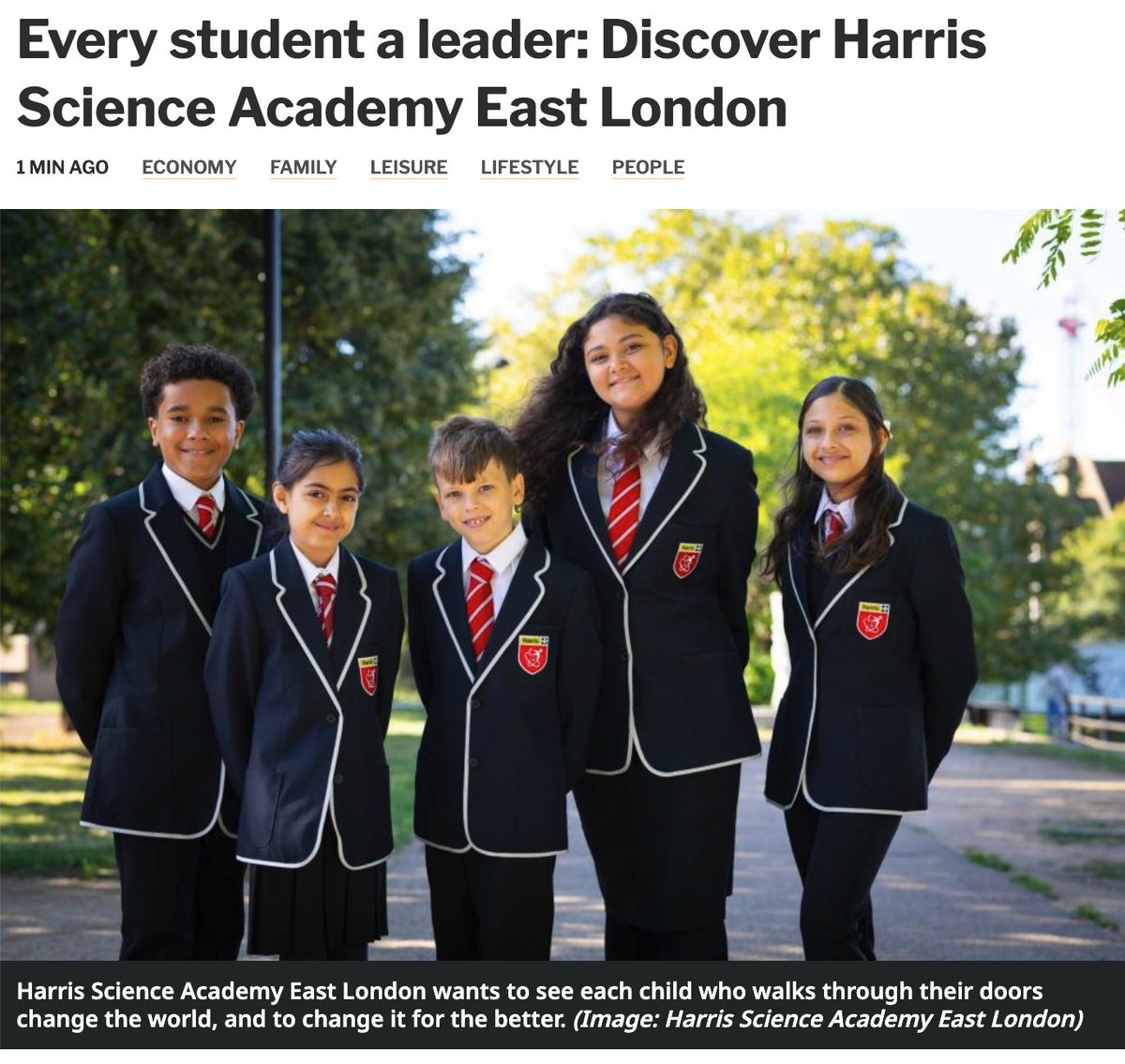Biology, Chemistry & Physics
Subject intent
Studying science will help students to be leaders in their chosen field because in a more technical and interconnected world, a rigorous science education will give students the greatest opportunities for success and will prepare them most effectively to have a positive impact in an uncertain future.
It takes students out of their comfort zone (and show growth) by exposing students to the ideas, processes, techniques and procedures that have shaped the modern world.
It helps students tackle social injustice (and demonstrate responsibility) by considering the impact of these processes on people's lives and the responsibility leaders have to make decisions based on the latest scientific facts and research.
It helps promote ambition by providing a pathway to elite institutions and entries into careers which typically do not pose as many class and status challenges as other areas.
It celebrates diversity (compassion) by exposing students to a diverse range of scientific thinkers who have worked collaboratively and internationally from history and the present day, so that every student can see a potential role model.
It helps students develop independence (excellence) by introducing students to the principles of research, hypothesis, testing, analysis to inform future decision making.
Subject links to HSAEL values
This subject is particularly important at HSAEL because research suggests (Laurisen and Friedman 2022) that entry to successful careers in science are more meritocratic and less subject to social and class bias than other elite careers. Scientists from working class backgrounds have a positive pay differential to those from middle class backgrounds (earning on average £5k more, in comparison to law and finance, where they earn £20k less). Engineering, for example, is a career open in terms of both access and progression, giving our students a clear route to leadership and positive social impact.
Endpoint
Natural Sciences at Cambridge (A*, A*, A) covers a wide range of physical and biological disciplines across different departments. Students must therefore secure the highest outcomes, while also taking a strong interest in science outside the course through reading and broader experiences. Students must also sit the Engineering and science admissions test (ESAT https://esat-tmua.ac.uk). ESAT requires a strong understanding of maths.
|
|
Autumn 1 |
Autumn 2 |
Spring 1 |
Spring 2 |
Summer 1 |
Summer 2 |
|
Year 7 |
Cells and movement Forces, Speed, Gravity & universe |
Forces, Speed, Gravity & universe Particle model, Physical changes. separating mixtures |
Revision Cycle 1 Assessment Return of papers, Knowledge misconception |
Human and plant reproduction |
Light, Sound, current, voltage and resistance, Revision Cycle2 Assessment
|
Return of papers, Knowledge misconception
Elements, periodic table, metals and non-metals chemical reactions |
|
Year 8 |
Variation, interdependence, breathing |
energy costs, energy transfer, heating and cooling Earth structure
|
Revision Cycle 1 Assessment Periodic table Acids and alkalis
|
Return of papers, Knowledge misconception
Digestion, respiration, photosynthesis |
Contact forces, pressure, work done.
|
Revision Cycle2 Assessment Return of papers, Knowledge misconception Types of reaction |
|
Year 9 |
Evolution, inheritance, Cells II Magnetism and electromagnetism, wave properties and effects |
Magnetism and electromagnetism, wave properties and effects Atoms, Separating mixtures |
Revision Cycle 1 Assessment Return of papers, Knowledge misconception
|
Cells II, Transportation in cells, digestion
Energy transfers II, Particle Model II, National and global energy |
Energy transfers II, Particle Model II, National and global energy Revision Cycle 2 Assessment
|
Return of papers, Knowledge misconception
Bonding and properties, quantative chemistry |
|
Year 10 COMBINED SCIENCE |
Digestion II, Plants as organisms, Keeping Healthy, Electricity |
Atomic Structure Acids, bases and salts, reactions and extractions of metals
Revision Cycle 1 Assessment |
Return of papers, Knowledge misconception Infectious diseases, homeostasis and response, interdependence II, environmental impacts |
Forces II, Motion II
|
Energy changes, rates of reaction, Equilibrium, Organic chemistry |
Revision Cycle 2 Assessment Return of papers, Knowledge misconception Work Experience
|
|
Year 10 BIOLOGY
|
Digestion II, Plants as organisms, Keeping Healthy |
Digestion II, Plants as organisms, Keeping Healthy
Revision Cycle 1 Assessment
|
Return of papers, Knowledge misconception
Infectious diseases, homeostasis and response, interdependence II, environmental impacts |
Infectious diseases, homeostasis and response, interdependence II, environmental impacts |
Infectious diseases, homeostasis and response, interdependence II, environmental impacts |
Revision Cycle 2 Assessment Return of papers, Knowledge misconception Work Experience |
|
Year 10 CHEMISTRY |
Acids bases and salts reactions and extractions of metals + quantative |
Reactions and extractions of metals Revision Cycle 1 Assessment |
Return of papers, Knowledge misconception
|
Energy changes Rates of reaction |
Equilibrium |
Organic Chemistry Revision Cycle 2 - Paper 1 Revision & Mock Exam - Return of papers, Knowledge misconception Work Experience |
|
Year 10 PHYSICS
|
Particle Model Electricity |
Electricity
|
Atomic Structure Forces |
Forces |
Forces |
Revision Cycle 2 - Paper 1 Revision & Mock Exam - Energy / Atomic Structure/ Particle Model/ Electricity Return of papers, Knowledge misconception Work/Experience |
|
Year 11 COMBINED SCIENCE |
Reproduction and inheritance II Chemistry of the atmosphere, earth's resources Forces/ Waves/ Magnetism and Electromagnet |
Revision Cycle 1 Assessment Return of papers, Knowledge misconception
|
Revision Cycle 2 Assessment Return of papers, Knowledge misconception |
Revision |
EXAMS
|
EXAMS
|
|
Year 11 BIOLOGY
|
Inheritance, Variation and Evolution |
Ecology Revision Cycle 1 Assessment Return of papers, Knowledge misconception |
Revision Cycle 2 Assessment Return of papers, Knowledge misconception |
Revision |
EXAMS
|
EXAMS
|
|
Year 11 CHEMISTRY
|
Quantitative chemistry |
Chemical Analysis Chemistry of the atmosphere Using resources Revision Cycle 1 Assessment Return of papers, Knowledge misconception |
Revision Cycle 2 Assessment Return of papers, Knowledge misconception
|
Revision |
EXAMS
|
EXAMS
|
|
Year 11 PHYSICS
|
Forces |
Waves Revision Cycle 1 Assessment Return of papers, Knowledge misconception
|
Electromagnetism Space Revision Cycle 2 Assessment Return of papers, Knowledge misconception |
Revision |
EXAMS
|
EXAMS
|
|
Year 12 BIOLOGY |
Biological Molecules Cells Induction Test
|
Cells Exchange Genetics, Populations Evolution and Ecosystems
|
Revision Cycle 1 Assessment Return of papers, Knowledge misconception |
Energy transfers in and between organisms |
Genetics, Populations Evolution and Ecosystems |
Revision Cycle 2 Assessment Return of papers, Knowledge misconception
|
|
Year 12 CHEMISTRY
|
Atomic Structure Amount of substance Bonding Induction Test
|
Kinetics Energetics
|
Introduction to organic chemistry, Alkanes Revision Cycle 1 Assessment Return of papers, Knowledge misconception |
Periodicity, group 2, group 7 equilibria redox
|
Organic Analysis Alcohols
|
Period 3 and their oxides thermodynamics Revision Cycle 2 Assessment Return of papers, Knowledge misconception
|
|
Year 12 PHYSICS
|
Measurements and their errors Force, Momentum & Energy Induction Test
|
Force, Momentum, Energy, Electricity Materials. |
Particles Electromagnetic Radiation and quantum phenomena Revision Cycle 1 Assessment Return of papers, Knowledge misconception |
Waves |
Circular Motion Simple Harmonic Motion |
Revision Cycle2 Assessment Return of papers, Knowledge misconception
|
|
Year 13 BIOLOGY |
Genetics, Populations, Evolution and Ecosystems |
Control of Gene Expression Revision Cycle 1 Assessment Return of papers, Knowledge misconception |
Revision |
Revision Cycle 2 Assessment Return of papers, Knowledge misconception |
Revision |
EXAMS |
|
Year 13 CHEMISTRY
|
Aldehydes, ketones and carboxylic acids/ Acids & bases, Aromatic chemistry, Amines/ Polymers, Amino acids, and biochemistry Organic synthesis Rates of reaction/ |
Chromatography & NMR Electrode potentials and electrochemical cells Revision Cycle 1 Assessment Return of papers, Knowledge misconception
|
Revision
|
Revision Cycle 2 Assessment Return of papers, Knowledge misconception
|
Revision |
EXAMS |
|
Year 13 PHYSICS
|
Simple Harmonic Motion Thermodynamics Gravitational Field |
Electric Fields Magnetic Fields Capacitance Nuclear Radiation Astrophysics Revision Cycle 1 Assessment Return of papers, Knowledge misconception |
Revision
|
Revision Cycle 2 Assessment Return of papers, Knowledge misconception |
Revision |
EXAMS |
|
For GCSE, Biology, Chemistry & Physics follows the AQA exam board. See the specification here; Biology - https://www.aqa.org.uk/subjects/science/gcse/biology-8461/specification-at-a-glance Chemistry - https://www.aqa.org.uk/subjects/science/gcse/chemistry-8462/specification-at-a-glance Physics - https://www.aqa.org.uk/subjects/science/gcse/physics-8463/specification-at-a-glance Combined Science Trilogy - https://www.aqa.org.uk/subjects/science/gcse/combined-science-trilogy-8464/specification-at-a-glance |
|
For A-Level, Biology, Chemistry & Physics follows the AQA exam board. See the specification here. Biology: - https://www.aqa.org.uk/subjects/science/as-and-a-level/biology-7401-7402/specification-at-a-glance Chemistry: - https://www.aqa.org.uk/subjects/science/as-and-a-level/chemistry-7404-7405/specification-at-a-glance Physics: - https://www.aqa.org.uk/subjects/science/as-and-a-level/physics-7407-7408/specification-at-a-glance |
How does the study of science link to future careers?
The study of science provides a foundation of knowledge and skills that are crucial for a wide range of future careers across various industries and sectors.
Transferrable skills include:
1. Specialized Knowledge: Science education provides specialized knowledge in fields such as biology, chemistry, physics, and environmental science, which are directly applicable to careers in research, healthcare, engineering, and technology.
2. Problem-Solving Skills: Science involves critical thinking, analysis, and problem-solving, which are transferable skills needed in professions such as medicine, engineering, data analysis, and environmental management.
3. Innovation and Technology: Advances in science drive technological innovations, making scientific knowledge essential for careers in fields like biotechnology, pharmaceuticals, information technology, and renewable energy.
4. Healthcare and Medicine: Understanding biology and chemistry is fundamental for careers in healthcare professions such as medicine, nursing, pharmacology, and biomedical research.
5. Environmental Sustainability: Knowledge of environmental science and ecology is crucial for careers in sustainability, conservation, environmental engineering, and policymaking related to climate change and resource management.
6. Data Analysis and Research: Science education emphasizes data collection, analysis, and interpretation, skills that are vital for careers in research, academia, market research, and data science.
7. Global Challenges: Many of the world’s current challenges, such as pandemics, climate change, and food security, require scientific expertise for understanding, mitigation, and finding solutions.
8. Interdisciplinary Opportunities: Science often intersects with other disciplines like economics, policy, and social sciences, creating opportunities for interdisciplinary careers in areas such as science communication, science policy, and bioethics.
How does English link to the extra-curricular provision at HSAEL?
In English, students are able to explore the literary heritage of London. With trips to The Globe Theatre to better understand where Shakespeare’s plays were first performed, to various art galleries that support students in developing analytical skills and contextual understanding, and to other museums such as the Museum of Victorian Science to better understand Victorian literature, students are able to explore the historical and artistic contexts that London offer to support in their understanding of literature.
































